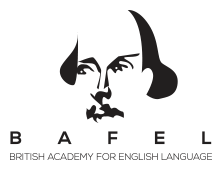Literature Series

Drama in Literature
SYNOPSIS
In this fascinating one-of-a-kind programme which marries drama and literature, participants will learn the essence of drama whilst diving deeper into the elements of the literature text. All of this will be taught through drama techniques, making the programme enlivening and highly memorable for participants, as they enjoy what they learn. BAFEL works closely with schools to decide the literature text which should be used.
OBJECTIVES
– Provide hands-on, authentic experiences for students to acquire skills, knowledge and critical faculties in the following Literature Areas of Study:
- Setting
- Characterisation
- Plot
– Through performative drama, expose and build students’ capacities in:
- Oracy
- Dramatisation
- Perspective-taking and empathy
-Apply a lexicon/vocabulary when discussing elements of drama/theatre
-Utilise performance as a means to access Literature Areas of Study for Drama;
-Develop confidence and creativity in speaking, acting, and performing in front of an audience;
-Critically appreciate drama as a performance genre, and a genre within the study of Literature
Shakespeare Junior (Signature Series)
SYNOPSIS
BAFEL’s signature programme will analyze 4 different plays- A Midsummer Night’s Dream, Romeo and Juliet, Richard III and The Tempest. William Shakespeare’s plays are considered some of the most important literary works in the English language, and studying his works can be a great way for participants to learn classic literature, as well as theater arts.
OBJECTIVES
- Learn who William Shakespeare was, and why he is important to learn about
- An overview of his complete works, including plays and sonnets
- Storyline, plot, character development and theme
- Vocabulary (translating old English words into modern day English)
- Famous, well-known quotes and phrases (learn a few Shakespearean pranks and jokes!)
- Brief history of English theater and performing arts
The Globe Players (Signature Series)
SYNOPSIS
Celebrate the transformative impact of Shakespeare through BAFEL’s signature programme. Participants go through a series of activities, discussions, games, videos and acts, are immersed in the world of of William Shakespeare. BAFEL’s course covers a range of genres and periods of his writing. There is an emphasis on both page and stage (or film), and on enriching enjoyment and appreciation of Shakespeare`s work in the context of his own time and of ours.
OBJECTIVES
– Getting started: Macbeth
- First act
- Language
- Ideas of tragedy
- Issues of culpability
- Imagery in the play
– Macbeth in the Jacobean context and now
- The Globe Theatre
- Simon Forman at the Globe
- Lady Macbeth and the witches
- The play’s politics
– Twelfth Night: ideas of comedy then and now
- Ideas of comedy
- Twelfth Night Act 1 Scene 1 and Act 1 Scene 2
- Modern ideas of comedy
- The roles of Malvolio and Feste
- The final scene
– Twelfth Night: gender and sexuality
- All-male theatre
- Gender politics in early modern England
- Same-sex relationships in the play
- The structure of the play
– Henry V: Elizabethan context and now
- The Elizabethan context
- The first printed text of the play
- Later productions and appropriations
- Changing attitudes to Henry
– Henry V: Shakespeare’s use of sources
- Rhetoric
- Other language in the play
- Chorus
- Sources
– Measure for Measure: what is a problem play?
- ‘Strategic opacity’
- Problem plays
- Characterisation
- Sources
– Measure for Measure: law, justice, and morality
- Biblical and political sources
- Barnardine
- The play’s conclusion
- Substitution
– The Winter’s Tale: late style and tragi-comedy
- The play’s structure
- Leontes
- Hermione
- Late plays
– The Winter’s Tale on the modern stage
- The Winter’s Tale in performance
- The play’s recent stage history
- Thinking about performance
- Imaginary performances
- Review
- ‘Parting is such sweet sorrow’
